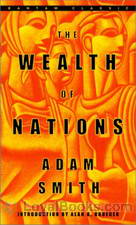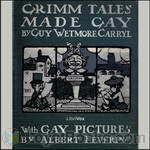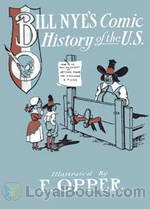|
Books Should Be Free Loyal Books Free Public Domain Audiobooks & eBook Downloads |
|
|
Books Should Be Free Loyal Books Free Public Domain Audiobooks & eBook Downloads |
|
Top Authors |
|---|
|
Book type:
Sort by:
|
By: John Stuart Mill (1806-1873) | |
|---|---|
 The Subjection of Women
The Subjection of Women
The Subjection of Women is the title of an essay written by John Stuart Mill in 1869, possibly jointly with his wife Harriet Taylor Mill, stating an argument in favor of equality between the sexes. It offers both detailed argumentation and passionate eloquence in opposition to the social and legal inequalities commonly imposed upon women by a patriarchal culture. Just as in “On Liberty,” Mill defends the emancipation of women on utilitarian grounds, convinced that the moral and intellectual advancement of women would result in greater happiness for everybody. | |
 Considerations on Representative Government
Considerations on Representative Government
Mill's volume was published in 1861 as an argument favoring this form of governance. Mill covers what forms of government work best, including when representative government is applicable and when not. He details appropriate functions of representative bodies and warns of problems to avoid. He distinguishes between true and false democracy. Other areas covered include how voting is carried out, the role of a second chamber in Parliament, and how an executive branch might function. | |
 Auguste Comte and Positivism
Auguste Comte and Positivism
Part 1 lays out the framework for Positivism as originated in France by Auguste Comte in his Cours de Philosophie Positive. Mill examines the tenets of Comte's movement and alerts us to defects. Part 2 concerns all Comte's writings except the Cours de Philosophie Positive. During Comte's later years he gave up reading newspapers and periodicals to keep his mind pure for higher study. He also became enamored of a certain woman who changed his view of life. Comte turned his philosophy into a religion, with morality the supreme guide. Mill finds that Comte learned to despise science and the intellect, instead substituting his frantic need for the regulation of change. | |
 The Contest in America
The Contest in America
| |
 A System of Logic: Ratiocinative and Inductive 7th Edition, Vol. I
A System of Logic: Ratiocinative and Inductive 7th Edition, Vol. I
| |
By: Sir John Barrow (1764-1848) | |
|---|---|
 Eventful History of the Mutiny and Piratical Seizure of H.M.S. Bounty
Eventful History of the Mutiny and Piratical Seizure of H.M.S. Bounty
On December 31 1787, the HMS Bounty, a small sailing vessel embarked from Spithead Harbor, England bound for Tahiti. Her mission was sponsored by the Royal Society in London and aimed at picking up breadfruit plants and fruit from Tahiti and conveying them to the West Indies, where it was hoped they would take root and become a commercial crop. The Bounty was an old ship with a young captain and 46 young officers. The captain's cabin was converted into a potting shed for the expected breadfruit cargo... | |
By: Willa Cather (1873-1947) | |
|---|---|
 My Antonia
My Antonia
Two young children arrive in a small frontier settlement on the wild and desolate plains of Nebraska, on the same day and by the same train. Jim Burden is a ten year old orphan from Virginia who has come to live with his grandparents, while Antonia Shimerda who's the same age as Jim, arrives with her large, immigrant family from Eastern Europe to try and eke out a living in the New World. The children find themselves thrown together as they live in adjoining farms. Jim tutors Antonia in English and they become good friends as they grow up... | |
 O Pioneers!
O Pioneers!
Published in 1913, O Pioneers! is the first novel in Cather’s Great Plains trilogy and follows the life of its young heroine, Alexandra Bergson, as she fulfills her father’s dying wish to take care of his farm, while also ensuring her brothers are well looked after. Entrusted with a great responsibility, Alexandra is determined to fulfill her father’s wish, as she goes on to prove her skills as a thriving farmer even though the task comes with a hefty price on her happiness. In addition, the... | |
 One of Ours
One of Ours
This 1923 Pulitzer Prize winning novel was written by Willa Cather. This work had been inspired by reading her cousin G.P. Cather’s wartime letters home to his mother. He was the first officer from Nebraska killed in World War I. Claude Wheeler, the subject of the novel, is a young man growing up on a Nebraska farm. The son of well to do parents, Claude is troubled by his apparent inability to find purpose with his life. Everything he does seems to turn out wrong, at least in his own mind. Although he is a skilled farmer, Claude believes his destiny lies elsewhere... | |
By: Horatio Alger, Jr. (1832-1899) | |
|---|---|
 Adrift in New York
Adrift in New York
Set in 19th century New York, this is the story of a wealthy old man who adopts his orphaned nephew and niece after his own four year old son mysteriously disappears. However, under a smooth exterior, the nephew is a conniving and avaricious villain who wants to grab all the old man's wealth for himself. This is also the story of a young boy, who doesn't know he's the sole heir to a fabulous fortune, but grows up homeless in the streets of New York. The villainous nephew proposes marriage to his cousin with a view to grabbing the entire inheritance... | |
 Ragged Dick
Ragged Dick
A fourteen year old homeless boy, Dick, tries to make an honest living in the streets of 1860s New York as a bootblack. He is determined to stay honorable, though he is tempted many times to easy pickings and a life of crime. When a regular customer is impressed by Dick's integrity and invites him to his mansion, this marks a turning point in the life of the young street-smart teenager. Ragged Dick by Horatio Alger Jr was first published in 1868. It represents a typical coming of age story in which a child attains the maturity of adulthood through circumstances in which important choices are made... | |
 Fame and Fortune
Fame and Fortune
Richard Hunter, in this sequel to Ragged Dick, continues his way in the world through hard work and excellent morals. He, along with his friend Henry, continue their positive outlook as they try to advance their lives. But Dick soon finds envy and jealousy leads others to work against him. How will Dick react as he tries to strive forward while others conspire to hold him down? (Written by Barry Eads) | |
By: William Wordsworth (1770-1850) | |
|---|---|
 The Prelude
The Prelude
Among monuments of narrative poetry, The Prelude; or, Growth of a Poet's Mind, by William Wordsworth, occupies a unique place. Wordsworth published the first version of the poem in 1798, but continued to work on it for the rest of his life. The final version, which is the subject of this recording, was published posthumously in 1850, by Wordworth’s widow, Mary. The Prelude is the first major narrative poem in European literature which deals solely with the spiritual journey of the author. In this respect the only predecessor to which it can be compared in Dante’s Divine Comedy, which is similarly a journey from personal confusion to certitude, from ignorance to realization... | |
 The Prose Works of William Wordsworth
The Prose Works of William Wordsworth
| |
 Selections from Wordsworth and Tennyson
Selections from Wordsworth and Tennyson
| |
 Poems in Two Volumes, Volume 1
Poems in Two Volumes, Volume 1
| |
By: Hermann Hesse (1877-1962) | |
|---|---|
 Siddhartha
Siddhartha
Once regarded as a cult book in the 1960s by the Flower Power generation, Siddhartha by Herman Hesse remains even today a simple and fresh tale of a man's spiritual quest. Penned by a deeply spiritual German author, Siddhartha explores multiple themes of enlightenment, thinking beyond set rules, love and humanity. Siddhartha is a young contemporary of the spiritual master Gautam Buddha who lived in India at some time during the 4th century BC. The story has striking parallels to Buddha's own life story in which he abandons his wealth and status as the young prince of Kapilavastu, his wife and young son and his family to embark on a voyage of self discovery... | |
By: Adam Smith (1723-1790) | |
|---|---|
 The Wealth of Nations
The Wealth of Nations
Adam Smith’s “The Wealth of Nations” gives an in-depth discussion of different economic principles like the productivity, division of labor and free markets. Although written and published more than 200 years ago, it’s still hailed as one of the most original works in the field of economics and is still used as a reference by many modern economists. “An Inquiry Into the Nature and Causes of the Wealth of Nations” is the complete title of this book and it was first published in 1776, the same year that the American colonies declared their independence from Britain... | |
By: John Buchan (1875-1940) | |
|---|---|
 The Thirty-nine Steps
The Thirty-nine Steps
The typical action hero with a stiff upper lip whose actions speak louder than his words, a mysterious American who lives in dread of being killed, an anarchist plot to destabilize Greece, a deadly German spy network, a notebook entirely written in code, and all this set in the weeks preceding the outbreak of World War I. The Thirty-nine Steps, by John Buchan is a spy classic entirely worthy of its genre and will delight modern day readers with its complicated plot. It is also notable for being the literary progenitor of the spook novel that typically features the secret operative on the run, determined to unravel a world domination plot... | |
 Greenmantle
Greenmantle
Greenmantle is the second of five Richard Hannay novels by John Buchan, first published in 1916 by Hodder & Stoughton, London. It is one of two Hannay novels set during the First World War, the other being Mr Standfast (1919); Hannay’s first and best-known adventure, The Thirty-Nine Steps (1915), is set in the period immediately before the war started. – Hannay is called in to investigate rumours of an uprising in the Muslim world, and undertakes a perilous journey through enemy territory to meet up with his friend Sandy in Constantinople. Once there, he and his friends must thwart the Germans’ plans to use religion to help them win the war, climaxing at the battle of Erzurum. | |
 Prester John
Prester John
This classic adventure novel by the author of Greenmantle and The Thirty-Nine Steps relates the first-person exploits of young David Crawfurd before the age of twenty. | |
 The Path of the King
The Path of the King
| |
 The Moon Endureth: Tales and Fancies
The Moon Endureth: Tales and Fancies
| |
 The African Colony Studies in the Reconstruction
The African Colony Studies in the Reconstruction
| |
 The Half-Hearted
The Half-Hearted
| |
 Salute to Adventurers
Salute to Adventurers
| |
By: Guy Wetmore Carryl (1873-1904) | |
|---|---|
 Fables for the Frivolous
Fables for the Frivolous
The Urban Rat and the Suburban Rat, The Persevering Tortoise and the Pretentious Hare, The Ambitious Fox and the Unapproachable Grapes.... If some of these titles seem vaguely familiar to you, you wouldn't be mistaken! Fables for the Frivolous by Guy Wetmore Carryl contains some well-known fables in a modern packaging, with a delightful new twist! The complete title of the original published in 1898 was Fables for the Frivolous (With apologies to La Fontaine) and it was the first published work of this gifted American journalist, humorist and poet... | |
 Grimm Tales Made Gay
Grimm Tales Made Gay
A comic rendering in verse of well-loved Fairy Tales of the Brothers Grimm, each ending with a moral and full of puns. The titles of the tales themselves make another verse. | |
 The Lieutenant-Governor A Novel
The Lieutenant-Governor A Novel
| |
By: Bill Nye | |
|---|---|
 Comic History of the United States
Comic History of the United States
For American journalist and humorist Edgar Wilson Nye who wrote under the pen name Bill Nye in the late 19th century, facts are not to be presented in their newborn, bare state. They should be properly draped and embellished before they can be presented before the public. Hence, in the Comic History of the United States published in 1894, he gives his readers the facts. But in a bid to make the historical figures more human he describes them as “people who ate and possibly drank, people who were born, flourished and died, not grave tragedians posing perpetually for their photographs... | |
 Comic History of England
Comic History of England
If you thought history was dull, dry and boring, you haven't read Bill Nye's books! He brings wit, humor, satire, irony and sheer nonsensical fun into the subject, making it both entertaining and memorable. The Comic History of England was published posthumously in 1896 after the writer's tragic and untimely death half-way through the project. Hence it remains incomplete and covers the history of the island nation only up to the Tudor period. However, beginning with Julius Caesar, the Roman invasion of Britain, the Druids and Stonehenge, this book is still a rib-tickling ride through the centuries... | |
 Bill Nye's Funniest Thoughts
Bill Nye's Funniest Thoughts
Bill Nye was a famous American humor columnist in the middle 1800's. He said "We can never be a nation of snobs so long as we are willing to poke fun at ourselves." And he did exactly that in hundreds of newspaper columns that were later collected into books. This is a selection of just 35 of the most humorous, wry and downright funny cogitations of his, written of course in the somewhat convoluted style common in the 19th century which just adds to their flavor in my opinion. The selection process was rigorous: only those that made me laugh, giggle or snort are included. | |